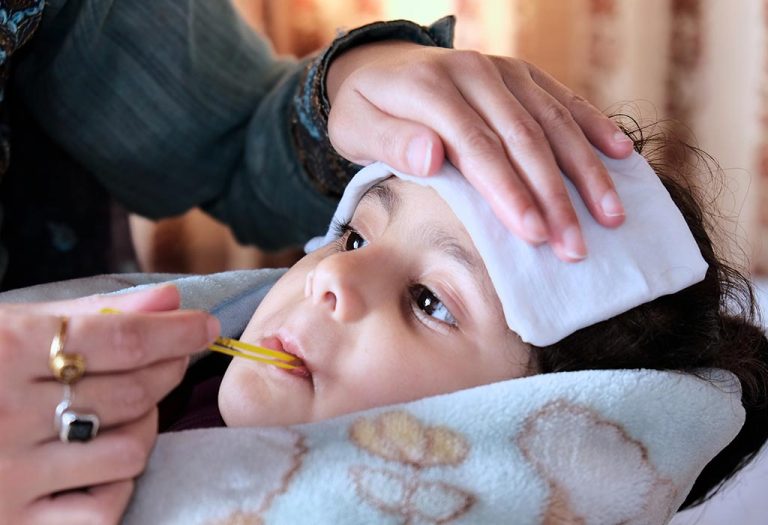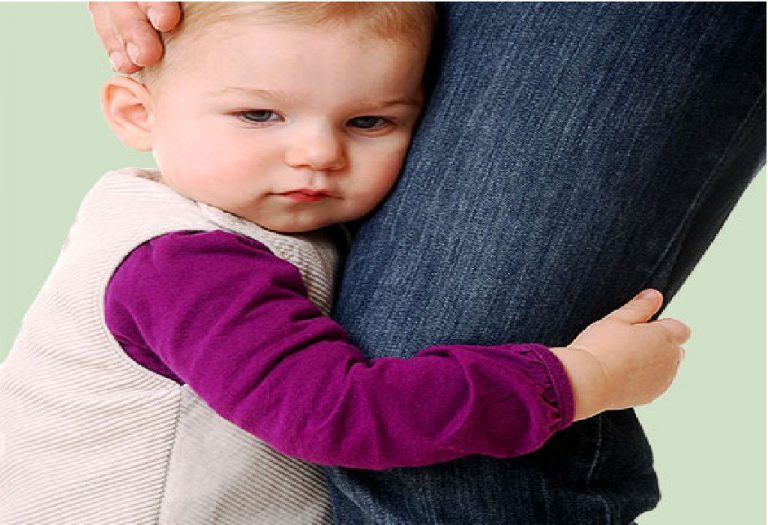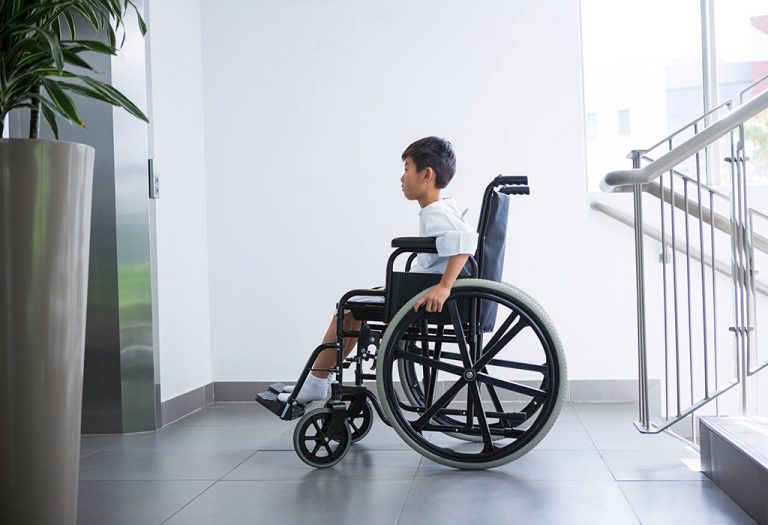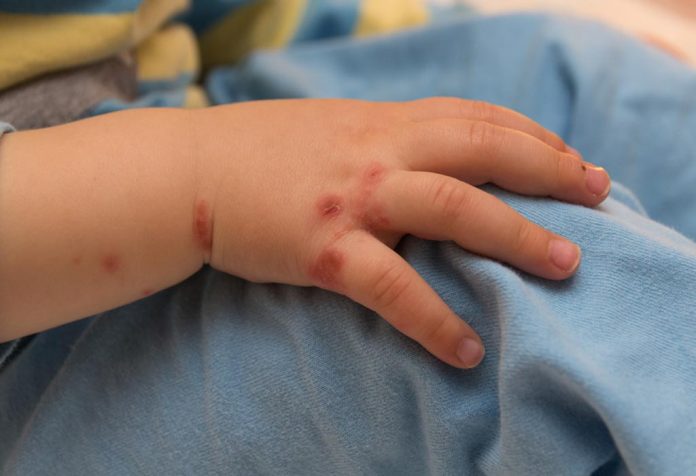15 Best Health Tips for Children

As a parent, an important concern you may have is developing and maintaining the good health of your child. Feeding nutritious food to kids at proper intervals is a challenge faced by most parents. Starting from food, exercise, sleep, family time, and doctor visits to following good manners at school, it is a long list of things that need to be taken care of. Every small activity inculcated right from the start will habituate your child to grow into a healthy being and a disciplined individual. Scroll down to find some of the most essential healthy tips for kids that will not only safeguard them today but also their future.
Top 15 Child Health Tips
You have to take care of your child’s well-being at all times. You cannot follow them everywhere. Hence, it is essential to teach them healthy habits to follow in life. Parenting is not easy and requires a fair amount of hard work. To help you in the process, here’s a list of the 15 best health tips for kids.
1. Natural Food and Balanced Diet
A balanced meal is the most recommended diet for every child as it helps in the betterment of one’s health and boosts immunity. You should offer a variety of food options to your kids so that they develop a taste for healthy foods. You do not need to force them to eat anything, but you can offer them a few bites to start with. Also, you should avoid giving them processed food, as they are filled with sugar, sodium, calories, and unhealthy fat. Instead, consider including the following foods in your kids’ diets (1):
- Proteins – Contribute to healthy brain development and immune system of the child.
- Basil and Mint – Helps to ward off colds, coughs, kidney stones, teeth disorders, and many other illnesses.
- Pasteurised Dairy – Contains all the minerals and proteins required for healthy development.
- Fresh fruits and vegetables
- Whole grains
- Fibre-rich foods
2. Minimal Sugar Intake
Food and drinks, including children’s malt-based energy drinks, which are high in sugar content, should be avoided, especially for kids under the age of 2 years. It may lead to children developing a sweet tooth, causing ailments like diabetes and tooth decay. It may also result in weak bones due to low calcium absorption caused by excess sugar in the body. In fact, the American Heart Association states that children between 2 and 18 years should consume less than 25 grams (six teaspoons) of added sugar daily (2).
3. Avoid Enforcing the ‘Clean Plate’ Rule
Most of us grew up following the clean plate rule, as we were instructed not to waste food served on one’s plate. However, this approach may lead to overeating in kids. It does not allow kids to understand and respond to the feeling of fullness in their bodies. As a result, they do not learn where to limit themselves and stop eating. So, give them plenty of food choices and allow them to pick what they are willing to try and eat. Guide them in deciding their intake capacity, and they will learn to eat within limits (3). Packaged fruit juices, sodas, energy drinks,
4. Occasional Desserts
You should make it a point to give sweets to your kids occasionally. Do not turn desserts into a reward, or else it may become the main reason for kids to have their food. Also, you should not use food or sweets as a way to show your affection. It can lead them to munch every time to cope with emotions and stress. Instead, you should shower them with hugs and praises.
5. Frequent Meals
Focus on feeding small portions of food to your child at regular intervals rather than the traditional habit of 3 big meals a day. The two main vital aspects of this habit, which can avoid potential ailments later in life, are:
- It becomes easy for the child’s body to digest small amounts of food.
- It will help in maintaining your child’s body weight and keep him fit.
6. Be on the Move
Keep your children engaged and active at all times. Do not let them become couch potatoes. You should set up minimal TV and computer time for your kids. Keeping them away from screens will help them use their time in a constructive manner. Motivate them to spend time playing some outdoor sport or indulge in other physical activities.
7. Getting Enough Sleep
Getting the right amount of sleep is equally important as it is vital for healthy growth and development in young children (4). It is advisable to habituate your kids to go to bed early and rise early. It will help create a routine for them, which they will be able to follow later in life.
8. Preventing Cold and Flu
Hand washing is one of the essential health tips for children to follow at home and school, and it can help prevent the possible spread of illness among children. Children need to be taught to wash their hands properly before and after eating and after using the bathroom. You can teach them to use anti-bacterial wipes. They also need to be taught not to share their cups and utensils with friends.
9. Plenty of Water
Some of our body’s most vital functions, like digestion, circulation, excretion, lubrication of joints, and maintenance of the spinal cord, require us to consume a good amount of water (5). Water also energises our body and keeps us hydrated throughout the day. Lacking the necessary amount of water may lead to problems like constipation, dehydration, and even kidney stones. According to the experts at CHOC, children older than eight years should drink at least two litres of water per day (6). Hence, it is recommended that you encourage your kids to drink water at frequent intervals to maintain their good health.
10. Reading Food Label
Today, there are so many processed foods on supermarket shelves that there’s no end. Processed foods often contain high amounts of dyes, artificial flavourings, preservatives, palm oil, and several additives that are known to cause cognitive and physical issues in children like ADHD, obesity, diabetes, high cholesterol, cardiovascular diseases, pre-cancer, and more (7) (8). According to a 2024 study published in JAMA, ultra-processed foods, including processed snacks, ready-to-eat meals, snacks, and sugary drinks, were linked with around 32 types of health issues, including obesity, poor sleep, and wheezing (9).
Thus, it is recommended that whenever you go to purchase groceries, take your child with you and carefully read the labels of items. Teach them how to do it and explain to them why you do what you do. Carefully check the product labels of items that interest you and analyse the damage they could do to your health.
11. Timely Vaccination
The World Health Organization says that vaccination or immunisation effectively reduces the risk of diseases and keeps the immunised individual healthy and secure (10). Several parents worry about the side effects, thus refraining their children from getting vaccinated. Although the side effects are mild, the protection from the vaccine outweighs the mild side effects, making vaccination an essential part of child protection (11).
12. Fruits and Veggies Instead of Processed Food
Most processed foods and junk foods have low nutritional value and contain high amounts of preservatives, artificial flavourings, colours, and taste enhancers that affect the brain and jeopardise the overall health of the child. This is why the cases of obesity, diabetes, cardiovascular diseases like heart attack, digestive disorders, etc., are increasing (12). The American Heart Association recommends choosing nutrient-dense foods, including fruits, vegetables and lean proteins and avoiding nutrient-poor/high-energy-density foods, such as ice cream, cookies, fried foods, salty snacks, and sweetened beverages (13). Fresh fruits and vegetables are rich in vitamins, fibre, minerals, and good water content that help children build immunity and strength (14). Thus, parents should keep children away from such foods and provide them with unprocessed foods like fresh fruits and vegetables. You can make different homemade recipes by giving twists to dishes and serve to your children.
13. Required Supplementation
It is common for parents to supplement children with malt-based supplements, vitamin candies, chewable calcium tablets, and fish oil tablets. While all these supplements are good for an individual’s health, their requirement can vary based on their actual deficiency, gender, weight, and physical activity. Supplementing a child with a particular vitamin or nutrient can lead to excess in the body and cause side effects like constipation, diarrhoea, or weight gain (15).
14. Correct Posture
Studying and watching TV can make children slouch and adapt to this position. However, slouching can affect children’s overall posture, affect posture and misalign the musculoskeletal system (16). Thus, the right posture is extremely important for children to have so they can keep their muscles flexible and stay away from several ailments.
The Harvard Medical School suggests that when sitting down, children should keep their chin parallel to the floor, the shoulders, knees, and hips at even heights, and the knees should be pointing straight ahead (17).
15. Kids Follow Adult Behaviour
Kids are prone to follow what they observe on a daily basis. They will most probably follow in your footsteps and that of their siblings. Hence, it is highly essential that you try to be a good role model and set the best example by implementing the following tips:
- Choose nutritious snacks
- Do not skip meals
- Eat together at a table
FAQs
1. How can I encourage my children to follow healthy habits?
To teach how to be healthy for kids, you should first implement them yourself. Children prefer to mimic their parents, as their parents are the primary caregivers and life teachers for children. Everything children learn in their early days is by observing their parents. Thus, parents should implement healthy living habits and then teach children by being their role models.
2. How many calories should a child consume in a day?
The daily calorie requirement depends on an individual’s age, weight, height, and physical activity. Nonetheless, the rough estimation for toddlers between 1 and 3 years old is about 1,000 and 1,400 calories a day. Boys need around 1,600 and 2,600 calories per day, while girls above the age of four need between 1,400 and 2,200 calories per day.
Developing a healthy lifestyle for your kids from a young age can prove beneficial to their well-being in the long run. By following these simple tips, you can shape your child’s habits and get him to understand the importance of being healthy from a young age. It is also essential for the entire family to have a healthy lifestyle as kids learn what they see around them. So, make sure you implement these tips in your life as well.
References/Resources:
1. Take Charge of Your Health: A Guide for Teenagers; NIH; https://www.niddk.nih.gov/health-information/weight-management/take-charge-health-guide-teenagers
2. Healthy kids ‘sweet enough’ without added sugars; Harvard T.H. Chan; https://nutritionsource.hsph.harvard.edu/2016/08/23/aha-added-sugar-limits-children/
3. No More “Clean Plate Club”; American Academy of Pediatrics; https://www.healthychildren.org/English/healthy-living/nutrition/Pages/The-Clean-Plate-Club.aspx
4. What Are Sleep Deprivation and Deficiency?; NIH; https://www.nhlbi.nih.gov/health/sleep-deprivation
5. About Water and Healthier Drinks; CDC; https://www.cdc.gov/healthy-weight-growth/water-healthy-drinks/?CDC_AAref_Val=https://www.cdc.gov/healthy-weight-growth/water-healthy-drinks/?CDC_AAref_Val=https://www.cdc.gov/healthyweight/healthy_eating/water-and-healthier-drinks.html
6. How Much Water Should Kids Drink?; CHOC; https://choc.org/programs-services/urology/how-much-water-should-my-child-drink/
7. Are highly processed foods bad for children?; American Society of Nutrition; https://nutrition.org/are-highly-processed-foods-bad-for-children/; June 2022
8. Poti JM, Braga B, Qin B. Ultra-processed Food Intake and Obesity: What Really Matters for Health-Processing or Nutrient Content? Curr Obes Rep.; PubMed Central; https://pmc.ncbi.nlm.nih.gov/articles/PMC5787353/; December 2017
9. Harris. E; Ultraprocessed Foods Linked With 32 Types of Health Problems; JAMA; https://jamanetwork.com/journals/jama/article-abstract/2816703; March 2024
10. Vaccines and immunization; WHO; https://www.who.int/health-topics/vaccines-and-immunization#tab=tab_1
11. Get Vaccinated; HHS; https://www.hhs.gov/immunization/get-vaccinated/index.html
12. Junk food and your health; Healthdirect Australia; https://www.healthdirect.gov.au/junk-food-and-your-health#complications
13. Dietary Recommendations for Healthy Children; American Heart Association; https://www.heart.org/en/healthy-living/healthy-eating/eat-smart/nutrition-basics/dietary-recommendations-for-healthy-children
14. Slavin JL, Lloyd B. Health benefits of fruits and vegetables. Adv Nutr.; PubMed Central; https://pmc.ncbi.nlm.nih.gov/articles/PMC3649719/; July 2012
15. Nutrition and Supplement Use; American Academy of Pediatrics; https://www.healthychildren.org/English/healthy-living/nutrition/Pages/Nutrition-and-Supplement-Use.aspx
16. Guide to Good Posture; MedlinePlus; https://medlineplus.gov/guidetogoodposture.html
17. Why good posture matters; Harvard Health Publishing; https://www.health.harvard.edu/staying-healthy/why-good-posture-matters
Also Read:
Basic Life Skills for Children
Essential Life Lessons for Kids
Good Manners to Teach Students & Kids
Bad Habits In Children & Ways To Deal With Them
Best Ways To Develop Healthy Eating Habits In Kids
Was This Article Helpful?
Parenting is a huge responsibility, for you as a caregiver, but also for us as a parenting content platform. We understand that and take our responsibility of creating credible content seriously. FirstCry Parenting articles are written and published only after extensive research using factually sound references to deliver quality content that is accurate, validated by experts, and completely reliable. To understand how we go about creating content that is credible, read our editorial policy here.
















.svg)
















